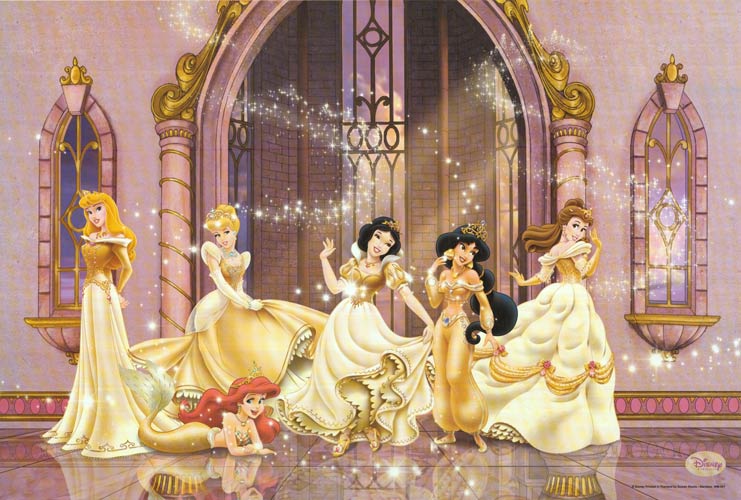A beautiful princess drifts through life until a handsome prince shows up, falls in love with her, and conquers whatever obstacle is there to protect her virtue (a dragon, riddle, high tower, witch, protective father, etc.), winning both her and the kingdom. She automatically falls in love with him at first sight (because he’s so charming, handsome, brave, and princely) or first kiss (because he’s just that good) and they have a huge wedding to kick off their “happily ever after”. Sounds familiar? It’s basically the plot for almost every traditional princess story we know. It’s also the plot to Turandot, the libretto loaded with cliches.

I’ll be honest. I was bored while reading it. While the structure was familiar, the execution could have been more exciting. There was no suspense for the answer to the riddles. Perhaps there could have been a sudden threat to the kingdom and the Prince was involved in eliminating it, only to come back and find the cold princess still required him to complete the riddle because his victory was not impressive enough. Maybe she would have learned something of his character and it would have softened her heart.
In the end, what do we know about the Prince’s character? He has been estranged from his blind father for years but easily abandons him when the trial comes up. He fell in love with Turandot at first sight, of course. He risks his life to answer her riddles which can be attributed to love making people do stupid/selfless things. He is sad when Liu – who sacrificed herself to preserve his anonymity – dies, but quickly turns to Turandot and kisses her against her will in a frenzy of passion (dead, faithful servant girls must really impassion him). He is intelligent enough to solve her riddles and offer her a riddle so she can accept the marriage on her own terms. When his “Love” is callous enough to order the execution of over a dozen princes in the past few years, it only makes sense to have her come into the marriage not wanting to kill him. So overall, he’s a handsome, intelligent man made stupid by love. What a redeeming character!
All the characters, except Turandot, were bland. She was cruel with her many executions, showing a heartlessness her father did not possess. He even begged the Prince to leave and not pursue his daughter so he would not have another execution on his hands. I admire her self-respect although it disappointingly dissipated into submission overnight. I suppose traditional art rarely has self-respecting women that are not ruthless or slightly crazy.
Liu is an interesting addition but contributes nothing to the plot, except maybe a contrast in types of love – her sacrifice versus Turandot’s resistance and submission. I suppose she shows how kind and handsome the Prince is; she does fall in love with him over one smile he kindly bestows on such a lowly servant.

Slight smile from Prince William (21 years ago)
The writing, the characters, and the plot lack passion. The musicality of the opera is more dramatic, elongating the scenes to convey more passion. Hopefully the performance adds the drama and suspense the writing lacks and the actors can bring the characters to life.

Completely off topic, but I really love your writing style. I was more engaged reading you response than Turandot. I agree that the plot of the opera is really bland and boring. The characters show no growth or redeeming qualities. Turandot seemed a little interesting in the beginning; she was cruel and immoral, but at least she had spunk. She even intimidated her father and I admired her for that. My slight like for Turandot disappeared immediately when she gave into Calaf after just one kiss. So anticlimactic! I was very disappointed with the plot overall since I could not bring myself to care about any of the characters, except I felt a little bad for Liu.
We have really similar view points regarding the majority of characters being subpar in the work. I used the word two dimensional and you used the word bland. Though both words mean similar things in this context, two dimensional can be applied to Turandot but bland can’t. Her tale is interesting. However, as you eloquently pointed out, it is unrealistic for her to go from self-respecting into submissive overnight.
Your analysis about Turnadot was well thought out. I liked how you interpreted the Prince as “made dumb by love.” He stupidly fell for Turnadot, and risked everything to answer the riddles. Overall, the play was very violent along with a synthesis of love and tragedy.